- with readers working within the Pharmaceuticals & BioTech industries
- within Law Department Performance and Real Estate and Construction topic(s)
As Republicans begin 2025 in control of the White House, Senate and House of Representatives, it is widely anticipated that the new GOP Congressional majorities will leverage the budget reconciliation process to enact many of their priorities without the need for bipartisan support from Democrats. Budget reconciliation is an optional, special procedure outlined in the Congressional Budget Act (CBA) to expedite the consideration of a narrow category of spending and tax legislation; Congress intended reconciliation bills to fulfill fiscal goals set out in annual budget resolutions. The most important feature of a budget reconciliation bill is that it is not subject to the filibuster in the Senate and, thus, can be enacted by simple majority (51 votes), rather than the 60-vote threshold typically required to end a filibuster. However, the CBA places strict limits on this unique procedural mechanism. The most restrictive of these limits is the so-called "Byrd rule," which allows Senators to block provisions of reconciliation bills that are "extraneous" to a policy's federal budgetary effects. The Senate Parliamentarian is the neutral referee of the process, determining whether CBA guardrails like the Byrd Rule are followed; reconciliation proponents must make the case for each provision to the Parliamentarian and her team for their consideration and review (the "Byrd bath"). Notably, this procedure is not self-executing; a Senator must assert a point of order against a provision on the floor in order for it to be struck from the reconciliation bill.
In anticipation of the 119th Congress and expected activity leveraging the federal budget reconciliation process to advance drug pricing and supply chain reforms, Manatt analyzed 40 individual pieces of legislation encompassing a range of drug pricing and supply chain policy proposals from the 118th Congress to assess which of these might be eligible for enactment through the budget reconciliation process. Manatt examined the legislative text of these policy proposals and the Congressional Budget Office's (CBO) cost estimates to determine whether these provisions would survive the so-called "Byrd bath."
The table below describes the policies and relevant legislation, a CBO estimate (if one exists), the health insurance markets to which these policies would apply, and our assessment of whether these are appropriate for reconciliation.1 Of the 40 pieces of legislation reviewed, only 12 of these bills (consisting of nine policies) appear to be appropriate for reconciliation at this time
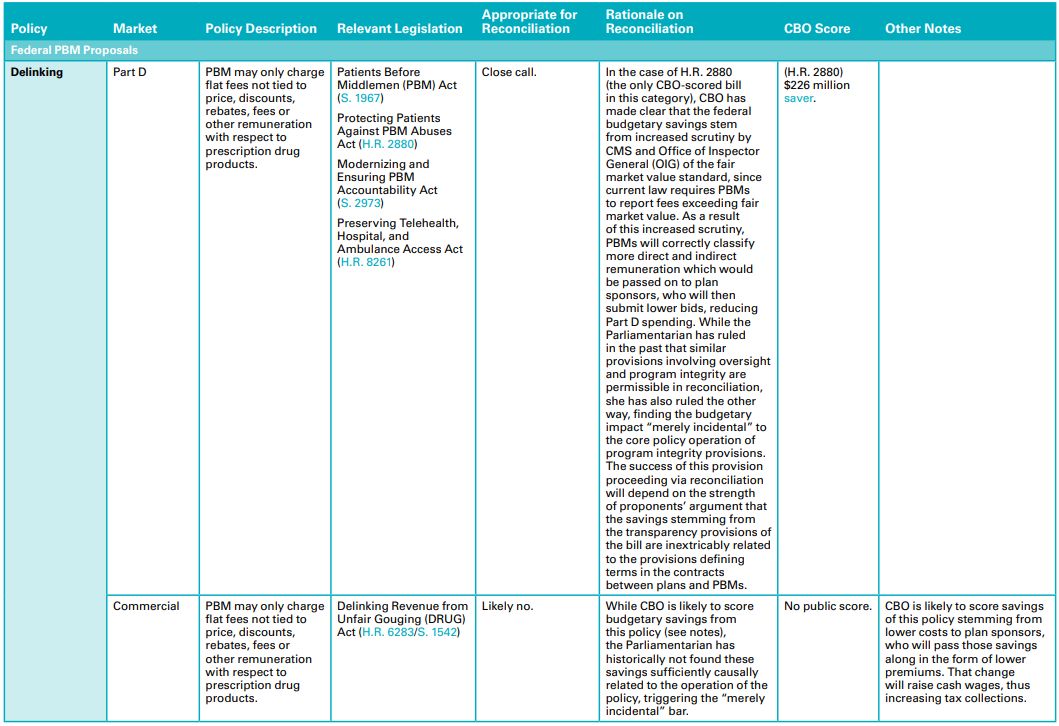
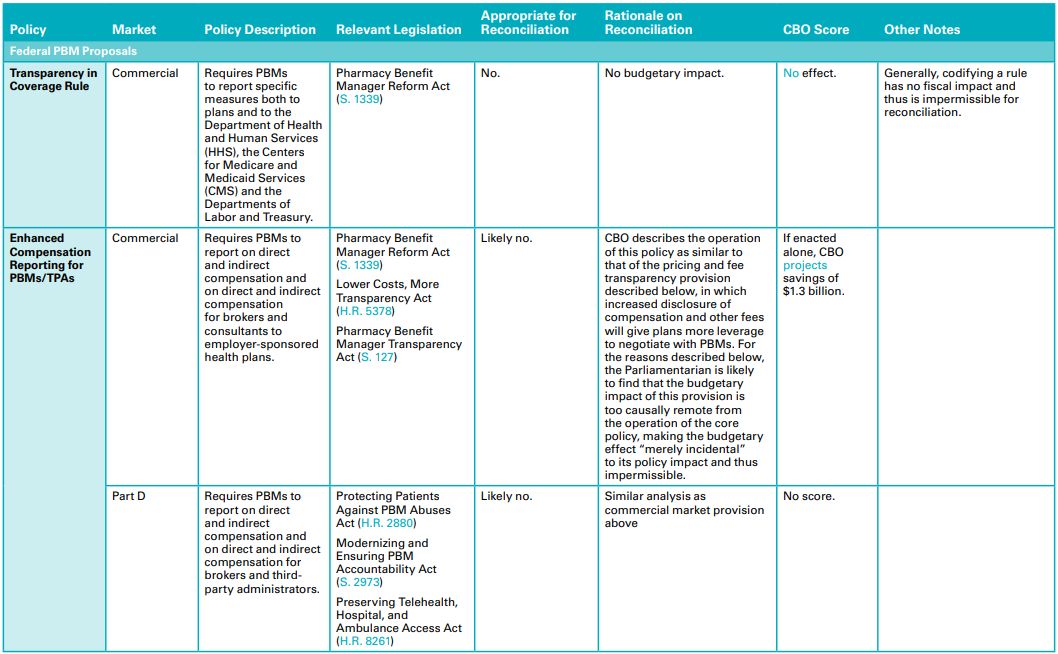
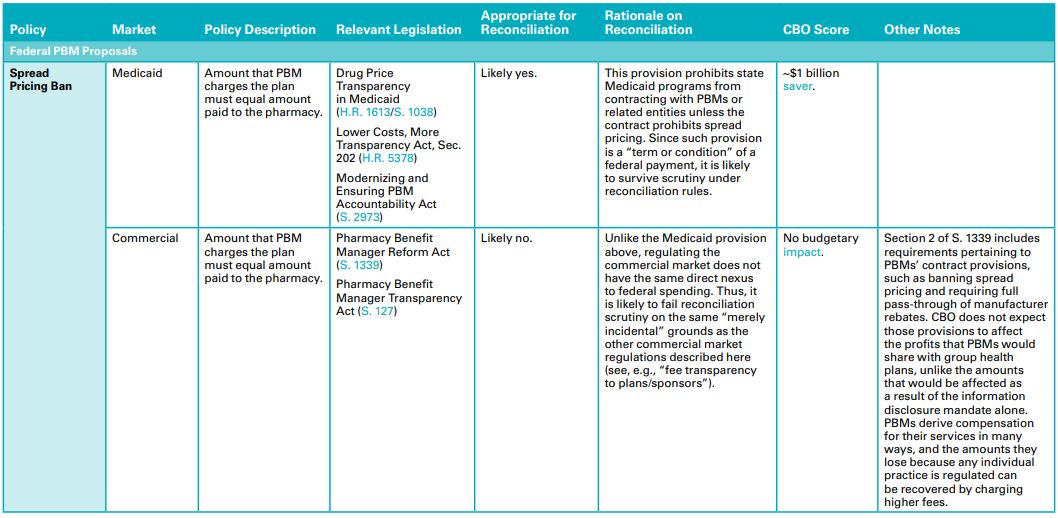
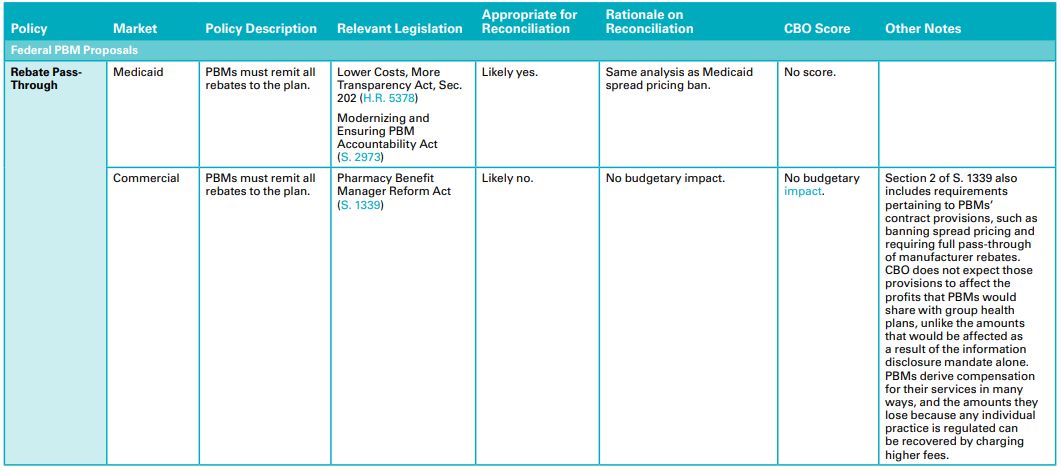
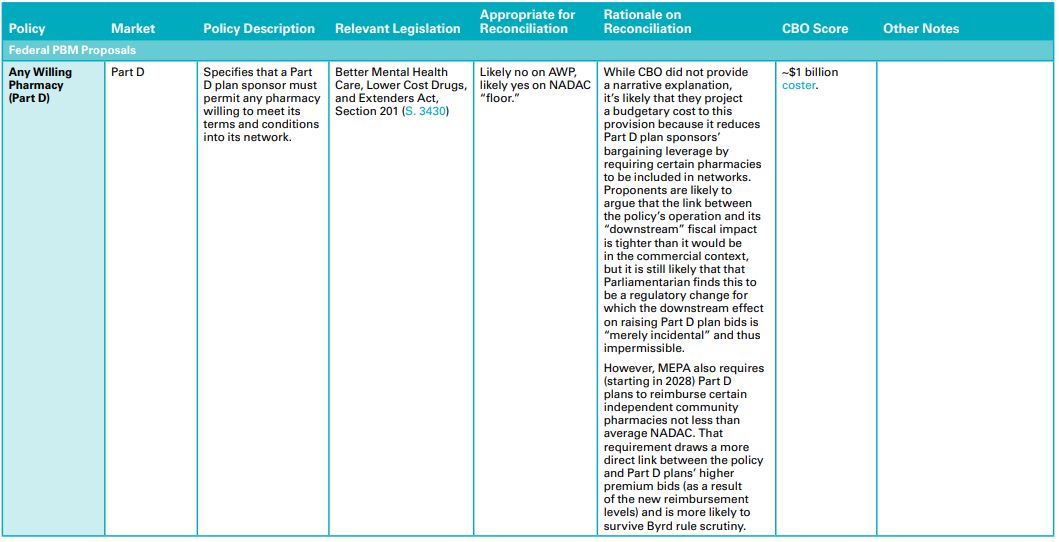

To view the full article click here.
Footnote
1. A three-fifths majority (60 votes) can waive a point of order against a provision under the Byrd rule and permit it to proceed. Too many provisions that waive the Byrd rule can jeopardize the privileged protections of the reconciliation bill altogether (also known as "fatal" to privilege). However, "too many" is subjective and based on the assessment of the Parliamentarian
The content of this article is intended to provide a general guide to the subject matter. Specialist advice should be sought about your specific circumstances.




